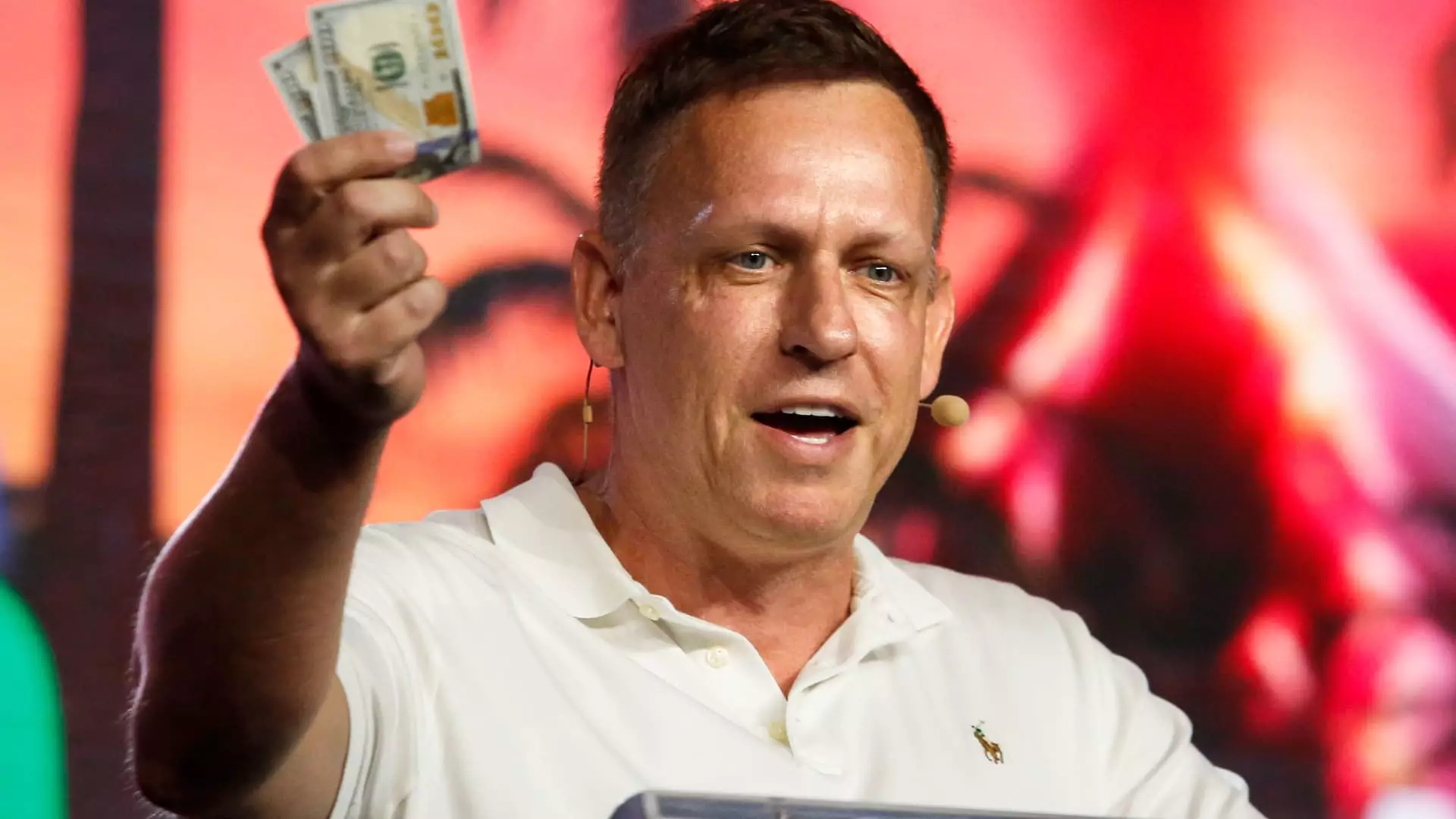When billionaires like Peter Thiel make headlines with jaw-dropping fund closures, it’s easy to become enraptured by the sheer scale of financial might. Recently, Thiel’s Founders Fund announced the closure of a massive $4.6 billion late-stage venture fund known as Founders Fund Growth III. This capital influx emanates from 270 investors, reshaping the landscape of private investment in technology enterprises. After years of surging valuations and rising stocks, one must ask: does such enormous financial power signal prosperity, or does it herald serious ethical and economic concerns?
First and foremost, the sheer volume of investment at stake raises existential questions about the concentration of wealth and influence in the tech space. As Thiel and his partners—Napoleon Ta and Trae Stephens—wield their newfound clout, one can’t shake the notion that mammoth funds like these create a breeding ground for an oligarchy of innovation, benefitting only a select few instead of fostering a genuinely competitive landscape. The notion here is not just volume; it’s about how these funds can corral small companies into situations where they must either conform to the whims of their wealthy investors or risk losing the capital necessary for growth.
The IPO Dream: A Falling Star?
The venture capital world thrives on the success stories of public offerings. However, it’s worth noting that the IPO landscape feels increasingly bleak as we stare into the abyss of an uncertain future. Companies like Klarna and StubHub have put their public ambitions on ice due to regulatory turbulence and market fluctuations caused by political influences. The uncertainty brought about by President Trump’s tariffs adds a layer of complexity that could render many of these tech giants unable to make that critical leap into public markets.
Yet, while the IPO window remains firmly shut, Founders Fund’s capacity for follow-on investments stirs ethical quandaries about leveraging its financial resources within a closed ecosystem. As traditional venture capital firms find themselves restricted by smaller fund sizes, Founders Fund stands in stark contrast, able to fund continued rounds of investment for tech companies while stacking the odds in their favor. This is not merely favorable for Thiel’s portfolio; it showcases a gradual shift towards concentration and monopolization of innovation, a dangerous path for the tech ecosystem at large.
Thiel’s Political Tug-of-War
One cannot discuss Thiel without mentioning his complex relationship with the political sphere. Once a prominent backer of Donald Trump, Thiel seems to have distanced himself from political favor, all while maintaining his libertarian leanings. His declaration at the Aspen Ideas Festival that he would vote for Trump “if you hold a gun to my head” raises troubling questions about the intersection of wealth, influence, and civic responsibilities. What does it mean for a billionaire to engage in political discourse when he seemingly opts for the least unfavorable option rather than a principled stance?
This hesitation illuminates a broader dilemma faced by tech moguls: should they wield their financial and intellectual resources to influence policy, or should they remain neutral, thus effectively ceding power to government actors who may lack their vision? Thiel’s reluctance to openly challenge statism in favor of liberty could reflect a fear of backlash or a calculated choice to remain under the radar as he continues to build his financial empire.
Investment Decisions: A Risky Business
As Founders Fund pours capital into investment opportunities, the implications are profound. While the firm has backed notable successes like SpaceX and Airbnb, one can’t ignore the inherent volatility of market trends. With a lackluster IPO market and fluctuating political climates, high-stakes ventures are fraught with risk. Thiel’s bet on defense technology firms like Anduril demonstrates a pivot towards more secure investments, yet such choices raise eyebrows regarding the ethical responsibilities of advocating for military ventures.
Overall, this situation begs the question: are venture capitalists like Thiel the new rock stars of the economy, wielding power previously reserved for government norms? Or are they simply perpetuating a system that favors risk-tolerance without accountability? It is evident that as Founders Fund wields its massive financial cannon, it concurrently destabilizes the marketplace, leaning toward a monopolized tech-driven future.

